Dialogue with Liao Zhihui: Macau, an Invisible City | Around the Hearth·CUHK
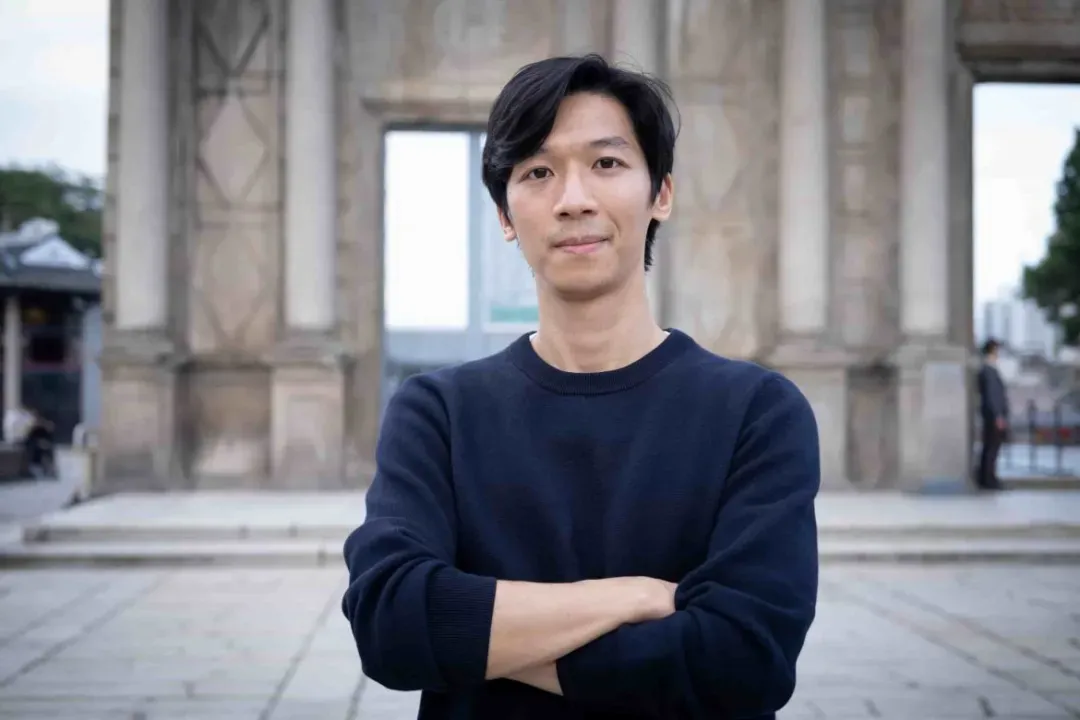
Liao Zhihui Jasper, a text creator from Macau. He has published academic works in both Chinese and English. He is the founder of the Macao popular science page "Macao Learning No. 16", and one of the founders of Macao's first paid knowledge program "Storytelling on the Border of the Empire".
Ricky | Is there any specific meaning of "Macao Xue No. 16"? Is there a story behind this name?
Jasper | "Macao Studies No. 16" can be divided into two parts to understand, "Macao Studies" and "No. 16". "Macao Studies" is obviously because the articles we write are mainly about the research of Macao, and what we want to do is to popularize science, introduce and refer some social science or historical research articles on the theme of Macao. Sometimes I also write about the issues of the four sides of the strait in the surrounding areas. And then, number 16 is the name I personally want to have. Because No. 16 is a route of the Macau bus, it often passes by where I live. We have a Facebook page with a profile picture of a bus in Macau. Because I live in the old town of the main island of Macau, the No. 16 bus will pass through many old streets and turn to some small roads. This route is a complex for me - I can take the 16 to see a lot of small roads and historical buildings that I don't see often, not just the casinos that ordinary tourists go to, those outside roads. We want to do some research on the knowledge content of Macau to show a different and lesser-known Macau. I think these are two very matching meanings, so they are combined.
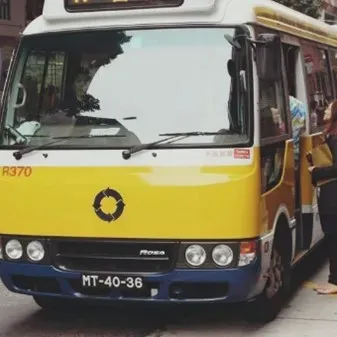
Ricky | We learned that "Macao Study No. 16" is one of the first blogs devoted to the popularization of Macao science. Your co-organized "Storytelling at the Border of the Empire" is also the most-watched paid column on the Matters platform. What kind of opportunities and opportunities make you willing to get involved in popular science writing of Macau studies, a field that few people have been involved in?
Jasper | First of all, "Macao Study No. 16" was organized by myself, and the subscription program "Storytelling on the Border of the Empire" was jointly organized by me and 3 other authors. All four of us are from Macau, and we all have some social science-related research backgrounds, although in different research fields. At the beginning of 20 years, we met each other in a lecture on Macau, and one of the authors had published an article on matters very early. At that time, everyone felt that the epidemic had just begun, which was a relatively big change for Macau. This was one aspect.
On the other hand, everyone has something to say about some social issues in Macau, and also feels that paying for knowledge is something that should be tried. Then they chatted with each other about what to do and whether to write something together. Just at this time, Matters started a subscription-based service. Although we have never written a paid article before, nor have we done anything related to the subscription system, we all felt that we could give it a try, so we started.
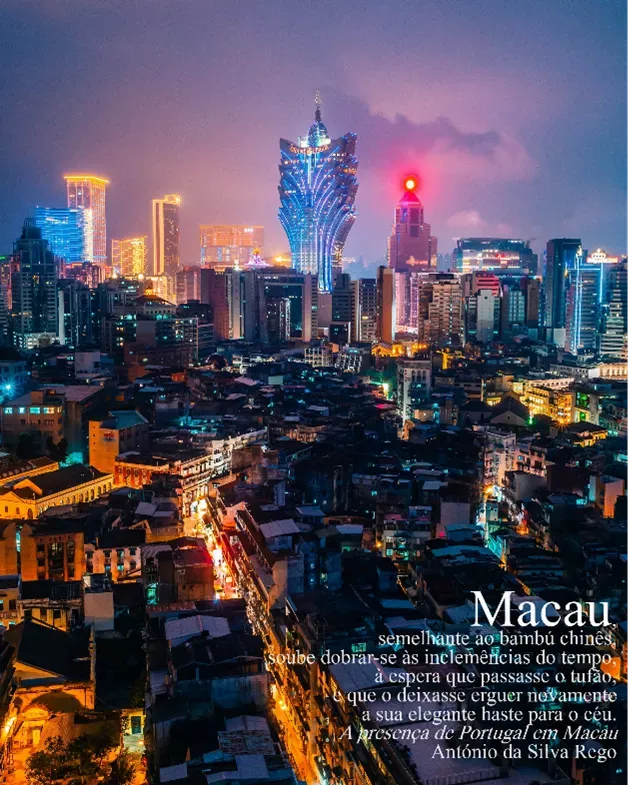
Ricky | Scholar Abbas Abbas once used the reverse hallucination Reserve Hallucination to describe Hong Kong, indicating that some things are clearly in front of us, but they are invisible and invisible. For a city, label-style stereotypes and sloppy characterization often cloud people's eyes. According to your observation, what kind of stereotype does Macau have in the eyes of different groups outside?
Jasper | Yes, this is also a direction we want to express, that is, we want to break some stereotypes about Macau, for example, that Macau only has pornography, gambling, and drugs. Although the main industry now revolves around the gaming industry, there is a certain historical context behind it, rather than the surface we see now. Another stereotype about Macau may be that it is relatively submissive to one country, two systems, a good model of one country, two systems, and a good child. Maybe outsiders will think that Macau people are more obedient and more patriotic. But in fact, if you learn about it, or study it from the perspective of a local, you will find some historical contexts of Macau's patriotism. Of course, some people are more patriotic. But if you understand the social issues in Macau, there will be some objective conditions for Macau people to accept the current system of one country, two systems.
I will say something very simply, for example, in the past period, the cost of fighting in Macau will be higher than in Hong Kong. Because its main media freedom or the redistribution of social resources are controlled by some traditional societies or important merchant classes, these objective conditions determine that resistance and disobedience are not supported conditions. I think Macau people will understand these things more or less. So from this aspect, its obedience is not so absolute, it is only a choice under objective conditions. However, the ideas of some local people behind these are not necessarily seen in the mainstream media, so we want to refer this knowledge.
Ricky | Both Hong Kong and Macau were once colonies of China and foreign countries, and they were also the areas where Greater China entered a capitalist society earlier, but why does Macau show a conservative and docile social atmosphere? Does this have anything to do with the uniqueness of Macau's colonial history?
Jasper | This is certain, and the mainstream academia in Macau also thinks the same way. In 1966, the tide of the Cultural Revolution also affected Macau. At that time, there was a riot (the "January 23 Incident"), and the pro-communist forces went to fight against the colonists in Macau. The result of this incident was an apology from the colonial Portuguese government, a kind of surrender to a certain extent, accepting the demands of many pro-communist forces and associations.
We usually say this, starting from this period, Macau society is actually not in a state of confrontation like Hong Kong. The British Hong Kong government has a strong colonial style, and it wants to promote some of its own governance ideas and logic, but in Macau, we don't see much that the Macau-Portugal government wants to implement some tough measures. It's actually a compromise strategy in exchange for it being able to continue to colonize during that time. At the social level, after it compromises, it must accept cooperation with some pro-communist groups and let them allocate some resources. Macau only returned to China in 1999, but since the beginning of 1970, the pro-Communist forces have begun to carry out some indirect governance in Macau. It may be to undertake some government services, it may be to apply for documents, it may be Tell some local Chinese about government announcements in Portuguese. In fact, these tasks are not undertaken by the government, but by traditional societies. So from a practical point of view, the local Chinese have already accepted this style of control, and they have come into contact with some patriotic ideological education or expectations of Macau after the handover earlier than Hong Kong. Compared with Hong Kong's colonial style and governance style, the transition in Macau is relatively smooth.
Ricky | In March 2021, the Standing Committee of the National People's Congress passed the "Decision on Improving the Election System of the Hong Kong Special Administrative Region", and the election system of the Chief Executive and the Legislative Council of Hong Kong changed accordingly. At that time, some media said that the reform of the electoral system would make Hong Kong politics "Macau-like". What do you think the "Macaoization" here means?
Jasper | We have also seen now that the opposition in Hong Kong's Legislative Council (I don't know if there is a nominal opposition in Hong Kong) will be like the situation in Macau's Legislative Council (but of course Hong Kong is worse now). The situation in Macau's Legislative Council is that the so-called pro-democracy faction is too small to have a veto mechanism, and can only delay. It cannot be like the state of the Legislative Council in Hong Kong a few years ago. Some systems also allow Hong Kong's pro-democracy members to have the possibility of vetoing, and there will be some powers to delay deliberation in the group parliament. But this is more difficult to see in Macau.
Another thing that is more difficult to see is that Macau does not have a split among the pro-establishment faction like Hong Kong. In Hong Kong, some pro-establishment factions have different identities, such as between businessmen, businessmen and workers, and there may be some policy inconsistencies with each other. For example, in 2003, when Article 23 was first legislated, some conservative figures vetoed Article 23, so it was not passed. But there is no such possibility in Macau. Relatively speaking, its establishment is more united, and it can be said that its resource allocation is more effective. What resources are we referring to? Certainly the source of legitimacy for the Macau government - the gambling tax, the redistribution of some of those resources from the gaming industry. Let me talk a little bit more. For example, some construction businessmen can get some construction contracts related to the gaming industry to build buildings, and consumption also depends on the tourists brought by the gaming industry. Specifically, because the gaming industry has been functioning well since its return, its resource allocation mechanism has also worked well, allowing the establishment to maintain unity very effectively. We said that the Legislative Council of Hong Kong may gradually move towards such a situation in the future, but now it seems that the Legislative Council of Hong Kong will move faster, at least for the past two years.
Ricky | As you mentioned "group politics", what role do you think "groups" play in the political participation of Macau citizens? What new changes and difficulties have you faced in recent years?
Jasper | If we follow the standard academic definition, we can better participate in civil society by participating in associations, because there may be some discussions and voting in associations. In the past, some researches have done some questionnaire surveys on associations in Macau. The result is that participating in associations can achieve a certain level of civic education. For example, I may be more daring to discuss social issues and have more opportunities to participate in some organizational work. The literacy required by a standard civil society.
But at a higher level, it means whether the association can play some oppositional role, or organize some protest actions, but this is not the case. The associations in Macau can play a certain role, but this role cannot go to another level or another dimension.
Speaking of the development of Macao associations in recent years, I think there are still some development problems for Macao associations. To put it simply, young people are less motivated to join some traditional associations. The so-called traditional associations are some workers' associations, women's associations, and neighborhood organizations, and their participation continues to decline.
I did research on the Macau labor movement during my master's degree. After the return, the participation of workers in labor associations and the number of trade unions continued to decline, which is a problem encountered by traditional trade unions and associations. But nowadays Macau people have more forms of entertainment, so there is no strong motivation to participate in traditional associations, but will turn to other different non-traditional associations, perhaps some sports or art associations. Of course, they have less organizational mobilization and less influence than traditional societies.
Ricky | "Diversity" is often associated with "community" in everyday contexts. In the cultural structure of Macau, it is not difficult to find that Macau has been influenced by the process of cultural hybridization to some extent, but it has also preserved two contrasting cultural traditions, and no one has been influenced by the other cultural force. But is there a real integration between different ethnic groups? In other words, have Macau people of different cultural backgrounds encountered any specific obstacles in the process of cultural integration?
Jasper | I think this question is good. The Macau government’s cultural propaganda itself is also inclusive and pluralistic, but according to some researches or personal experience we have seen, I think another way of speaking about this pluralism is that everyone lives in parallel time and space, and there is no intersection with each other and no interference with each other. . Living in the same space will have real communication, but this is a question mark in Macau. That is to say, between my two main groups, the Chinese and the Macanese, there is actually very little opportunity to understand each other's culture, or motivation to understand each other's lives. Everyone's life seems to be on two parallel lines. Of course there are many reasons, such as language. The proportion of local Chinese who can understand Portuguese is actually very small. I don't think if you don't know Portuguese, you don't have the motivation to get to know each other either. From this point of view, cultural diversity and integration are somewhat unreasonable.
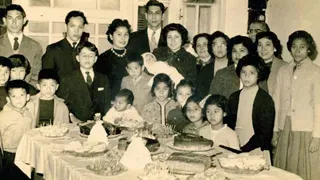
Another point that the outside world does not know is that protectionism in Macau is very serious. Macau people are very afraid of others, including new immigrants from the mainland, which is somewhat similar to Hong Kong, and also some foreigners who want to stay and work. Macau people may have some people who are afraid of the outside world competing with them for good social welfare. There are also reasons for this. For example, many major jobs in Macau's major industry gaming industry have policies to protect local people. For example, the government stipulates that dealers can only be held by locals, and some other positions will also arrange a certain proportion of locals. Their income is considerable. However, the educational requirements and related technological requirements for practitioners in these major industries are not high, so as long as they reach a certain level, practitioners can get a good salary, which is higher than the salary of ordinary college students entering the society. I think most practitioners in these major industries also know their disadvantages, so they will be worried about any plans for talent introduction or industrial transformation. This is the reason for the so-called protectionism, and it will also lead to discrimination against foreigners. For example, some foreign domestic helpers in Southeast Asia will feel dirty...
So I think two aspects, the parallel time and space between the local Chinese and the Macanese, and the prevalence of protectionism in Macau, are the other side of the communion and pluralism of the current official propaganda.
Ricky | What are your expectations and prospects for the future of "Macao Xue No. 16"?
Jasper | The first is to keep doing it. I think the significance of the subscription system is to help us ensure a certain frequency of publications. This is a consensus with subscribers that we want to maintain.
The other is that we want to try more cooperation, to promote knowledge and pay, such as exposure in more media, or to hold more physical events. This year, we have a half-yearly paid lecture, which focuses on some academic topics related to social sciences. We would like to stress that you have to pay to listen to these lectures, because this will put a requirement on the organizers and readers, and hope that both parties will do better, so that the cultural quality can continue to improve.
references: [1] Abbas, M. (1997). Hong Kong: Disappearing Culture and Politics. Hong Kong: The University of Hong Kong Press. 【2】 Li Zhanpeng. (2018). Invisible Macau: Neglected City and Culture. New Taipei City: Hiking Culture Enterprise Co., Ltd. [3] Li Zhanpeng. (2013). Meet Macau at the Edge of the World (1st ed.). Macau: Macau Daily Press. [4] Porter, Jonathan. (1990). Popular Chinese food in Macau. Cultural Review, 10, 51-66 [5] Li Zhigao (Francisco Gonçalves Pereira). Portugal, China Macau Tour (Portugal, China and the "Macao Problem"). Macau: Oriental Portuguese Institute, August-September 2013
Text | Ricky
Reviewer | Focamo
Figure | From the Internet
WeChat editor | Zhang Yuxuan
matters Editor | Marks
Around the Fire (ID:weilu_flame)

The pictures in the text are not used for other purposes without consent
You are welcome to comment below the article to exchange discussions with the Ios team and other readers
If you want to know about the fireplace and read more articles, please pay attention to this official account and click the corresponding menu column on the official account page

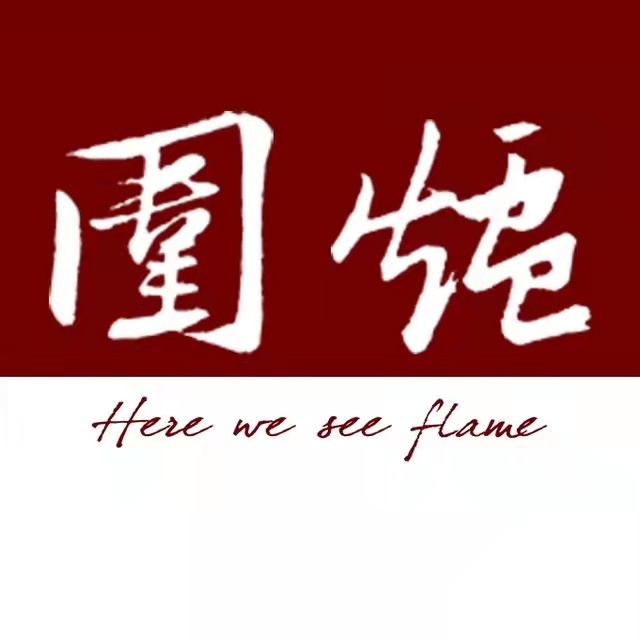
Like my work? Don't forget to support and clap, let me know that you are with me on the road of creation. Keep this enthusiasm together!

- Author
- More